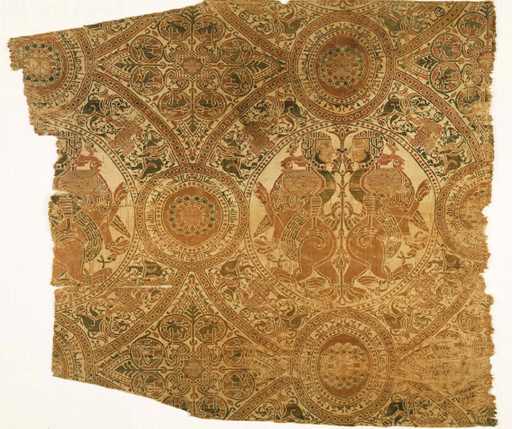Difference between revisions of "MFA 33.371, Fragment with wrestling lions and harpies, Southern Spain (early 12th century)"
Jump to navigation
Jump to search
| Line 6: | Line 6: | ||
| − | [[File:MFA 33.371. | + | [[File:MFA 33.371.PNG|center|frame|Fragment with wrestling lions and harpies. © Museum of Fine Arts, Boston. ]] |
== Summary of results == | == Summary of results == | ||
| − | [[File:Sampling PEM E80968.PNG|thumb| | + | [[File:Sampling PEM E80968.PNG|thumb|two threads, red and green, were collected for dye analysis]] |
| + | |||
| + | Red thread from the collar seam was samples and analyzed. | ||
| − | |||
== HPLC profile == | == HPLC profile == | ||
Revision as of 10:30, 10 August 2017
Artifact Information
Museum of Fine Arts, Boston 33.371. 50X43 cm (Ellen Page Hall Fund).
Fragment of shroud be [1].
Summary of results
Red thread from the collar seam was samples and analyzed.
HPLC profile
References
[1] Gary Dickinson, and Linda Wrigglesworth, Imperial Wardrobe, Bamboo Press, London, (1990) 199.
[2] Xian Zhang,Karina Corrigan, Bruce MacLaren, Mimi Leveque, and Richard A. Laursen, Characterization of Yellow Dyes in Nineteenth Century Chinese Textiles. Studies in Conservation 52, 211-220 (2007).

